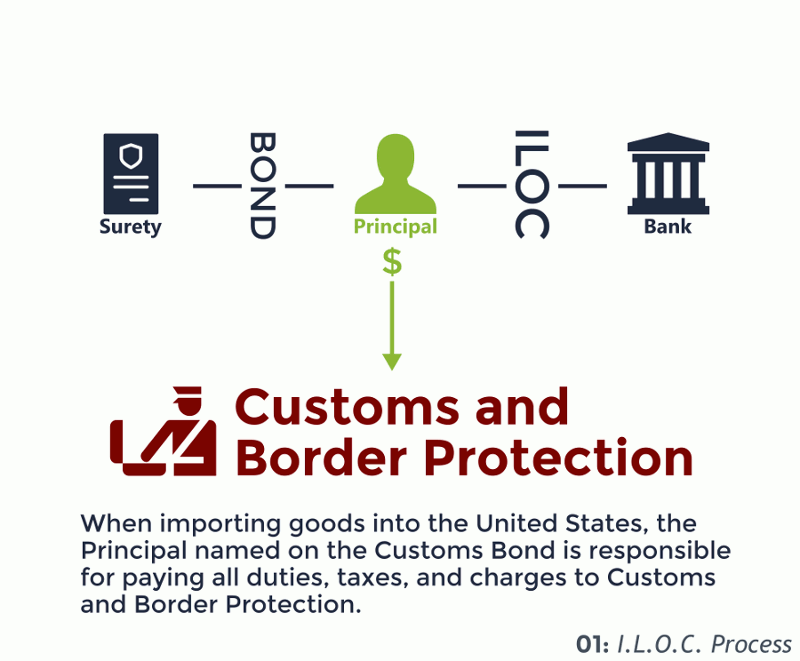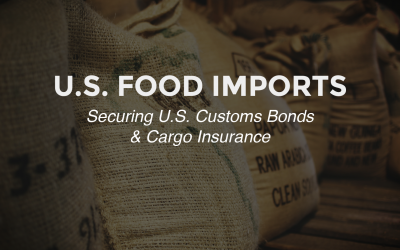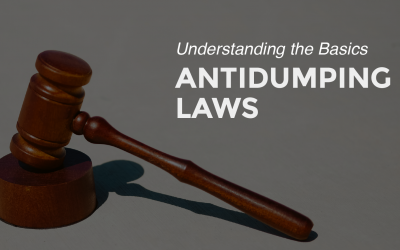TRG is here to clarify the confusion that surrounds acquiring an Irrevocable Letter of Credit. Including why you may need it and what is it used for.
When purchasing a customs bond or in taking part in other processes involved in international trade, an importer may be required to have an Irrevocable Letter of Credit (also known as an I.L.O.C.). Since there are many steps to deeming if an I.L.O.C. will be necessary and then acquiring one when it is, this can be a confusing requirement during the process of importing into the United States.
What is an I.L.O.C.?
An Irrevocable Letter of Credit is a financial tool stating that the Issuing Bank guarantees the buyer’s obligation to the seller. Once established, it allows a business to utilize a bank’s creditworthiness for a specific amount of money during the financial interaction.
There are three parties involved in this transaction; the Principal, the Surety, and the Issuing Bank. The Principal needs a secure way to ensure the Surety will get paid in the event of a claim so the Issuing Bank establishes collateral to the Surety in the form of an I.L.O.C.
I.L.O.C.s are deemed irrevocable because the Issuing Bank cannot amend the credit terms without the consent of Principal. Therefore, the I.L.O.C. stays in place throughout the entire transaction.
How Does an Irrevocable Letter of Credit Work?
An Irrevocable Letter of Credit does not replace the Principal’s requirement to pay the duties/taxes/penalties of their entries on their own. However, it is held by the Surety as a last resort in the case of Surety payout, which should be avoided at all costs. The following is the process in which an I.L.O.C. follows when this situation occurs.
- When importing goods into the United States, the Principal named on the Customs Bond is responsible for paying all duties, taxes, and charges to Customs and Border Protection.
- If the Principal is unable to pay the duties, taxes, and charges due to CBP and a claim is filed, the Surety will pay Customs up to the bond amount on behalf of the principal.
- Once the Surety has made a payment to CBP on behalf of the Principal, CBP has been satisfied, but the Principal will now owe the Surety for the amount paid.
- With an I.L.O.C. in place, the Surety is able to draw upon it as payment from the Principal via the Issuing Bank.
- Once the I.L.O.C. has been drawn upon, the Surety has been satisfied and the Principal will owe the amount pulled from the I.L.O.C. to the Bank that issued it.

Why do I Need an Irrevocable Letter of Credit?
In most cases, an I.L.O.C. is necessary for young businesses that are new to importing since there is either very little or no Customs transaction history under their importer number. In this case, an additional financial backing may be needed to guaranty that all fees and duties will be paid to Customs.
An Irrevocable Letter of Credit is used to minimize the risk the Surety takes on when writing a U.S. Customs Bond on behalf of Principal. At any point during established timeframe of the I.L.O.C., the Surety can draw upon it as payment from the Principal via the Issuing Bank. Again, an Irrevocable Letter of Credit does not take the place of the Principal’s requirement to pay the duties/taxes/penalties of their entries on their own.







